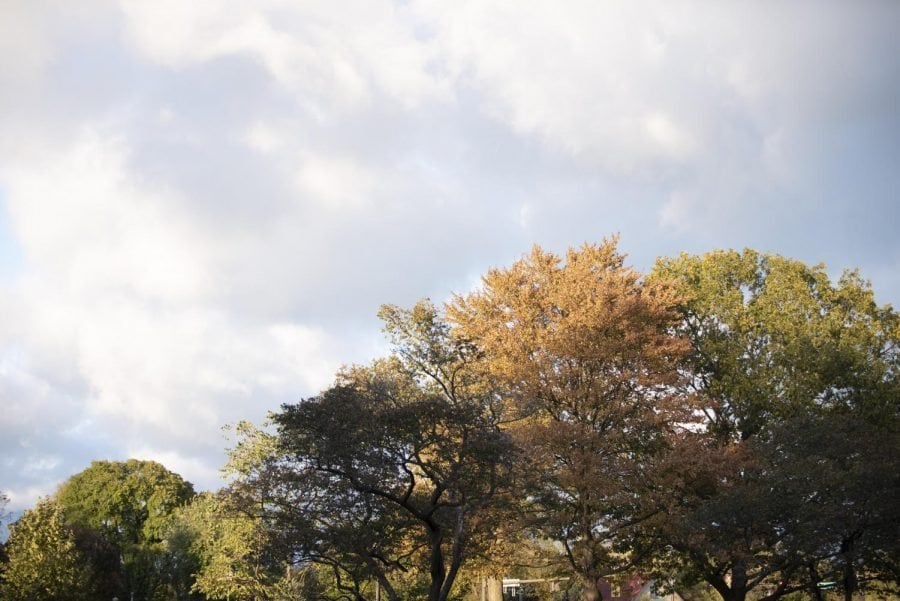City Council changes existing leaf blower usage restrictions
Daily file photo by Colin Boyle.
On Monday, City Council approved changes to an existing ordinance restricting leaf blower usage.
June 18, 2021
After extended debate and public comment on the issue, City Council voted to alter Evanston’s existing limitations on the use of leaf blowers on Monday, though major changes to the ordinance were postponed.
The approved changes will extend Evanston’s warm-weather ban on gasoline-powered leaf blowers — initially set to expire on Sept. 30 — to Oct. 15. Before the change, residents could use leaf blowers in the fall and spring from 7 a.m. to 9 p.m., but the time frame has now seen a six-hour reduction, beginning at 9 a.m. and ending at 5 p.m.
These changes were less significant than some of the ones proposed in the initial amendment, which looked to eliminate the use of leaf blowers on all holidays, implement more restrictive weekend hours and move up the cut-off time to 4 p.m.
However, City Council eventually decided against the initial proposal due to its extensive policy changes. Ald. Eleanor Revelle (7th) said it will be important to wait before implementing such extensive changes, citing inadequate time for community feedback.
“The proposed ordinance that’s on tonight’s agenda is really trying to do too much too quickly,” Revelle said. “I would recommend that we spend the summer months with a community engagement process and come back to the council with a revised ordinance at our second meeting in September.”
Some local landscaping businesses were concerned with the impact the first proposed shift could have on their companies, especially if large changes were implemented just a few months before the fall.
Paul Klitzkie, the general manager of Nature’s Perspective Landscaping, said his company has already invested in multiple electric leaf blowers, which don’t face the same restrictions as gasoline-powered leaf blowers under the existing ordinance.
However, an electric leaf blower can cost up to two or three times as much as a gasoline-powered one, he said, and further restrictions on one or both kinds of leaf blowers could potentially prevent businesses from fulfilling contracts they may already have in existence.
“These hardships will truly be small in comparison, if we must cancel or restructure our many multi-year contracts that were built on the existing ordinance of utilizing a combination of gas, propane and electric blowers to service the properties that we maintain,” Klitzkie said. “This hardship will only be intensified if the city exempts itself from the new ordinance.”
Advocates for the more restrictive amendment, however, cited both noise pollution and environmental pollution as reasons for a more extensive ban on gasoline-powered leaf blowers.
For some community members, such as resident Kyle Campbell, the issue is a point of significant concern. Campbell cited research about the impact of pollution and pointed to other cities that have implemented significant restrictions to call for a complete ban on gasoline-powered leaf blowers.
Ald. Cicely Fleming (9th) said she understands the need for increased restrictions based on the ecological and health impacts of gasoline-powered leaf blowers. However, she said a slower amendment process would balance residents’ concerns with local landscaping companies’ interests.
“I would be concerned with implementing this cost right away, particularly for smaller business owners,” Fleming said. “There’s two sides to every coin here. So I think that a more gradual phasing in of this makes more sense, particularly because we’re getting ready to be at the end of the season.”
Email: [email protected]
Twitter: @jacobnfulton
Related stories:
— Welsh-Ryan arena for-profit event pilot program extension denied
— City Council approves creation of Reimagining Public Safety Committee
— Council votes to move forward on retroactive hazard pay for retail employees


